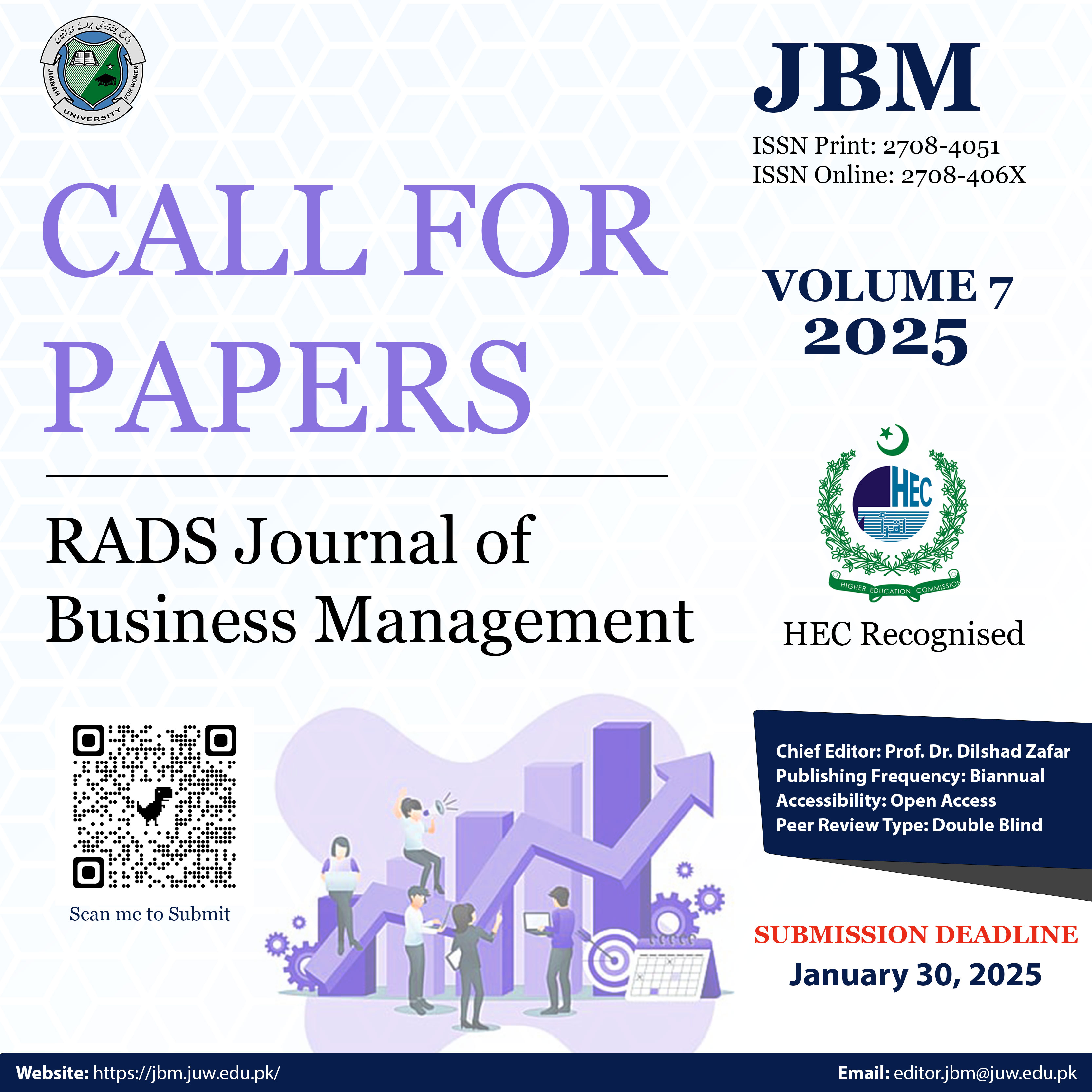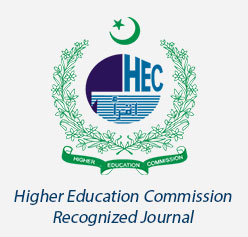Editorial from Co Editor
Abstract
It is with great pride and sincere privilege, on behalf of the Editorial Board, that I am writing this message to present the first issue of the RADS Journal of Business Management. The launch of this new journal would not have been possible without the great and much appreciated contributions of Chief Patron Mr. Wajeehuddin Ahmad, Chancellor and Patron Prof. Dr. Naeem Farooqui, Vice-Chancellor of Jinnah University for Women.
The aim of the journal is to provide a common platform for researchers to quickly share their novel ideas and the latest developments in business management and finance. The journal wishes to serve as a national and international forum for all editorial issues in an effort to disseminate the findings that guarantee scientific excellence. The Journal is currently open to scientific contributions in the fields of economics, management, auditing, finance, accounting and business.
This inaugural issue consists of six papers. The first contribution by Nawaz Ahmad, Rakshanda Abban and Umer Bin Mazhar deals with the link between the characteristics of the brand community members' familiarity, trust and perceived personalization and community involvement. Based on survey data and multiple linear regression, all three factors have been shown to be significant contributors for brand commitment, brand trust, familiarity and perceived personalization.
The second paper, by Jennifer Nerrissa Prakasch and Muhammad Muzammil Ghayas, focuses on the impact of Servant Leadership and its various dimensions on Turnover Intention. The data were extracted from 201 banking sector employees and applied Multiple Regression Analysis, the study concluded that servant leadership plays an important role in determining the intentions for turnover.
Saad ud din Khan and Syed Rashid Ali estimate the aggregate export demand in Pakistan in the third paper. They use the autoregressive distributed lag model (Bound test) and find that the exporting partner's real foreign income has a positive and relative price index having a significant negative effect, and the effective real exchange rate has a negative effect on Pakistan's aggregate export demand.
Juned Ali Shah, Jawaid Ahmed Qureshi and Abdul Samad contributed the fourth paper. This paper describes consumer loyalty playing a key role in consumer purchasing decisions and buying choices from shopping malls. The authors concluded that Environment (of the Shopping Malls), Brands Diversity, Entertainment, Accessibility and Convenience had a significant impact on consumer loyalty towards shopping malls.
The fifth paper by Hina Zaidi, Muhammad Muzammil Ghayas, Talha Iftikhar Khan Durrani determines the impact of Workplace Spirituality on Job Satisfaction in the Karachi healthcare sector. Data was collected from 250 employees in the healthcare sector. Based on the Multiple Regression Analysis, the result has shown that the Alignment of Values, Meaningful Work, Compassion and Spiritual Direction advances the understanding of spirituality in the workplace linked to job satisfaction.
Dilshad Zafar and Rukhshinda Begum contributed the last paper. They study the impact of private sector financing of public welfare projects for the economic growth of the country. Their study was based on a theoretical analysis of the literature. The results of the study suggest that the involvement of private sector in public welfare projects seems to be in higher interest for developing nations where the revenues from government sources are not sufficient to finance the massive, risky and time taking projects.
The birth of a new journal is the result of a long process, and we have taken all the necessary steps to make it a high-quality scientific publication. We rely on the collaboration of all our editors, reviewers and contributors to make it a contemporary, lively and relevant publication. We hope you will enjoy reading our first issue and find these articles useful to stimulate your research in economics, business and commerce area. We invite you to submit your best papers for publication.
The author retains the copyright and grants the right of first publication to the journal.





